7 Essential SEO Best Practices for 2025 Success


SEO strategies that worked last year are quickly becoming outdated. In fact, Google now prioritizes websites with loading times under 3 seconds and advanced AI-driven content. But many business owners are still stuck using old tricks that barely move the needle. Search engines in 2025 are rewarding creativity, deep expertise, and real user engagement more than ever before. The real opportunity is hidden in the new rules—and most people have no idea what actually matters now.
Table of Contents
- Understand The Evolving Search Engine Algorithms
- Prioritize User Experience And Site Speed
- Optimize For Mobile-First Indexing
- Leverage Ai And Automation For Content Creation
- Implement Structured Data For Rich Snippets
- Focus On Local Seo Strategies For Small Businesses
- Analyze And Adapt With Data-Driven Insights
Quick Summary
| Takeaway | Explanation |
|---|---|
| Stay Ahead of Algorithm Changes | Understand and adapt to evolving search engine algorithms to ensure digital strategy success in 2025. |
| Enhance User Experience and Site Speed | Focus on fast, seamless websites to improve user satisfaction and search rankings significantly. |
| Prioritize Mobile Optimization | Ensure content is optimized for mobile-first indexing to meet user expectations and improve ranking. |
| Leverage AI for Content Creation | Use AI for efficiency, but maintain human oversight to ensure content quality and authenticity. |
| Implement Structured Data | Use structured data to enhance search visibility and improve click-through rates with rich snippets. |
1: Understand the Evolving Search Engine Algorithms
Search engine algorithms are constantly transforming, making it critical for businesses to stay ahead of emerging trends. In 2025, understanding these algorithmic shifts will separate successful digital strategies from those left behind. Our comprehensive guide on search engine algorithms provides deeper insights into these dynamic changes.
Modern search engines now prioritize more than just keyword matching. They increasingly focus on user experience, content quality, and semantic understanding. This means your content must go beyond traditional optimization techniques and demonstrate genuine value to users.
Key algorithmic considerations for 2025 include:
-
Artificial Intelligence Integration: Machine learning models are becoming more sophisticated in understanding context and user intent
-
User Engagement Metrics: Platforms like Google are weighing factors such as time on page, bounce rate, and interaction quality more heavily
-
Content Depth and Expertise: Shallow, generic content will be penalized in favor of comprehensive, authoritative material
According to research from Michigan Technological University, regularly updating website content remains a critical indicator of relevance. Search algorithms reward websites that demonstrate continuous improvement and current, valuable information.
Successful SEO in 2025 requires a proactive approach. Businesses must anticipate algorithmic changes, continuously adapt their strategies, and focus on creating genuinely helpful content that serves user needs. By understanding these evolving search engine algorithms, you can develop more resilient and effective digital marketing strategies.
2: Prioritize User Experience and Site Speed
User experience and site speed have become fundamental pillars of successful SEO strategies in 2025. Search engines now prioritize websites that deliver fast, seamless, and engaging digital experiences. Learn how to boost your website speed with our comprehensive guide to stay competitive in this evolving digital landscape.
Website performance directly impacts user satisfaction and search engine rankings. Slow loading times can dramatically increase bounce rates and reduce user engagement. Modern users expect instantaneous access to information, and search algorithms reflect this expectation by rewarding websites with superior technical performance.
Critical user experience and site speed considerations include:
-
Mobile Responsiveness: Ensuring smooth performance across all device types and screen sizes
-
Loading Speed: Minimizing page load times to under 3 seconds for optimal user experience
-
Interactive Elements: Creating smooth, responsive interactions without significant lag
According to Google's Web Vitals initiative, websites must focus on three primary metrics:
-
Largest Contentful Paint (LCP): Measures loading performance
-
First Input Delay (FID): Evaluates interactivity
-
Cumulative Layout Shift (CLS): Assesses visual stability
Technical optimization is no longer optional but essential. Businesses must invest in robust hosting, efficient coding practices, image compression, and strategic content delivery networks. By prioritizing user experience and site speed, you create a competitive advantage that satisfies both users and search engine algorithms.
3: Optimize for Mobile-First Indexing
Mobile-first indexing has transformed how search engines evaluate and rank websites, making mobile optimization no longer optional but absolutely critical. Explore our comprehensive mobile SEO strategies to ensure your digital presence remains competitive.
Search engines now predominantly use the mobile version of content for ranking and indexing. This fundamental shift means websites must deliver exceptional mobile experiences that are not just scaled-down desktop versions, but strategically designed for mobile users.
Key mobile optimization considerations include:
-
Responsive Design: Ensuring content adapts seamlessly across different device screen sizes
-
Touch-Friendly Navigation: Creating intuitive interfaces that work perfectly with touch interactions
-
Compressed Media: Optimizing images and videos for faster mobile loading
Mobile optimization goes beyond technical implementation. It requires a holistic approach that considers user behavior, interaction patterns, and content consumption preferences on smaller screens.
According to research from the University of Rochester, effective mobile content should:
-
Use shorter, more concise paragraphs
-
Implement clear, scannable formatting
-
Prioritize critical information at the top of the page
Businesses must recognize that mobile users have different expectations and limitations compared to desktop users. Slow-loading pages, complex navigation, or non-responsive designs can instantly drive potential customers away. By prioritizing mobile-first design, you not only improve search engine rankings but also create a superior user experience that builds trust and engagement.
4: Leverage AI and Automation for Content Creation
Artificial intelligence has revolutionized content creation, offering unprecedented opportunities for efficiency and scalability. Discover our comprehensive content creation strategies to harness the power of AI while maintaining high-quality standards.
AI-powered content generation is no longer a futuristic concept but a present-day reality. Businesses can now leverage advanced algorithms to produce initial content drafts, conduct keyword research, and generate data-driven insights with remarkable precision.
Critical considerations for AI-driven content creation include:
-
Human Oversight: Ensuring AI-generated content maintains authenticity and emotional resonance
-
Ethical Content Generation: Avoiding plagiarism and maintaining original thought
-
Continuous Learning: Regularly updating AI models with current industry knowledge
According to research from the Vital Annex International Journal, a hybrid approach combining AI efficiency with human refinement yields the most effective SEO results. While AI can generate content quickly, human expertise remains crucial in adding nuance, creativity, and strategic depth.
Key strategic approaches for AI content integration:
-
Utilize AI for initial content drafting and research
-
Implement human editing and refinement processes
-
Develop custom AI models tailored to your specific industry and brand voice
Successful content creators in 2025 will view AI as a collaborative tool, not a replacement for human creativity. By striking a balance between technological innovation and human insight, businesses can develop content strategies that are both efficient and authentically engaging.
5: Implement Structured Data for Rich Snippets
Structured data has emerged as a powerful SEO strategy, transforming how search engines understand and display website content. Generate your JSON-LD schema quickly with our free tool to enhance your website's search visibility.
Rich snippets provide search engines with precise, contextualized information about your content, enabling more sophisticated and visually appealing search results. By implementing structured data, websites can significantly improve their chances of standing out in search engine results pages.
Key structured data implementation strategies include:
-
Schema Markup: Using standardized code to define content categories
-
Semantic Tagging: Providing clear context for search engine algorithms
-
Comprehensive Information: Including detailed metadata about products, services, and content
According to AI-Pedia's research on structured data, implementing structured data can lead to more accurate search representations and potentially higher click-through rates.
Critical types of structured data to prioritize:
-
Event information with precise dates and locations
-
Product details including price, availability, and reviews
-
Organization information like contact details and business descriptions
Successful structured data implementation requires a strategic approach that balances technical precision with comprehensive content representation. Websites must continuously update and refine their structured data to maintain relevance and accuracy in an evolving digital landscape. By treating structured data as a dynamic communication tool with search engines, businesses can dramatically enhance their online visibility and user engagement.
6: Focus on Local SEO Strategies for Small Businesses
Local SEO has become a critical differentiator for small businesses seeking to dominate their geographic markets. Explore our comprehensive guide to local SEO strategies to transform your digital presence and attract nearby customers.
Hyperlocal targeting represents the future of digital marketing for small businesses. By optimizing online visibility within specific geographic regions, companies can effectively compete against larger competitors and connect directly with their most relevant audience.
Key local SEO optimization strategies include:
-
Google Business Profile Management: Ensuring accurate and comprehensive business listings
-
Localized Content Creation: Developing region-specific website and social media content
-
Geographically Targeted Keywords: Incorporating neighborhood and city-specific search terms
According to research from the Journal of Medical Internet Research, local SEO strategies significantly enhance online visibility and drive substantial foot traffic for small businesses by optimizing location-based search factors.
Critical local SEO elements to prioritize:
-
Consistent NAP (Name, Address, Phone Number) across all online platforms
-
Encouraging and managing customer reviews
-
Creating location-specific landing pages
Small businesses must recognize that local SEO is more than just technical optimization. It represents a strategic approach to building digital relationships within specific communities, leveraging technology to create meaningful connections with potential customers. By implementing sophisticated yet targeted local SEO techniques, businesses can transform their online presence from generic to genuinely impactful.
7: Analyze and Adapt with Data-Driven Insights
Data-driven insights have transformed SEO from a guessing game into a precise strategic discipline. Learn how to leverage analytics for content strategy and unlock your digital potential.
Advanced analytics now provide unprecedented visibility into audience behavior, content performance, and emerging search trends. Businesses that master data interpretation can create more targeted, effective SEO strategies that dynamically respond to changing digital landscapes.
Key data analysis strategies include:
-
Performance Tracking: Monitoring key metrics like organic traffic, bounce rates, and conversion rates
-
User Behavior Analysis: Understanding audience interaction patterns and content preferences
-
Competitive Benchmarking: Identifying gaps and opportunities in your digital strategy
According to research exploring Generative Search Engine Optimization, modern SEO requires a sophisticated, data-driven approach that continuously analyzes and refines content strategies through automated, intelligent systems.
Critical data points to continuously monitor:
-
Keyword ranking fluctuations
-
Organic search click-through rates
-
Content engagement metrics
Successful digital strategies in 2025 will be characterized by their ability to rapidly interpret complex data signals and make informed, agile adjustments. By treating data as a dynamic, living resource, businesses can develop SEO approaches that are not just reactive, but predictive and proactively optimized for emerging search ecosystem trends.
The table below provides a comprehensive summary of the seven essential SEO best practices for 2025, outlining each strategy, its main focus, and the core benefits highlighted in the article.
| SEO Best Practice | Main Focus/Action | Key Benefits/Outcomes |
|---|---|---|
| Understand the Evolving Search Engine Algorithms | Stay informed/adapt to latest algorithm changes | Improve resilience, content quality, and strategic effectiveness |
| Prioritize User Experience and Site Speed | Optimize for speed, responsiveness, and seamless UX | Higher rankings, reduced bounce rates, better engagement |
| Optimize for Mobile-First Indexing | Design for mobile usability and fast mobile loading | Improved mobile rankings, increased satisfaction, broad reach |
| Leverage AI and Automation for Content Creation | Use AI tools with human oversight for content | Efficient creation, high quality, and enhanced authenticity |
| Implement Structured Data for Rich Snippets | Employ schema markup and detailed metadata | Boosts SERP visibility, click-through rates, and rich results |
| Focus on Local SEO Strategies for Small Businesses | Target local searches, manage profiles and reviews | Enhanced local visibility, higher foot traffic, local engagement |
| Analyze and Adapt with Data-Driven Insights | Monitor performance and pivot strategy with analytics | Informed decisions, agile improvements, predictive optimization |
Take Your SEO to the Next Level With Babylovegrowth.ai
Are you feeling overwhelmed by constantly changing search engine algorithms, the demands of mobile-first indexing, and the pressure to deliver high-quality content that ranks in 2025? If you want to keep up with Google and ChatGPT without the stress of chasing technical updates or relying on expensive agencies, Babylovegrowth.ai can help you turn these challenges into growth opportunities. Our platform brings together everything discussed in "7 Essential SEO Best Practices for 2025 Success" by combining AI-powered content, real-time analytics, and a robust backlink exchange system. Your website can rise above the competition with automatic article publishing, business-focused analysis, and a powerful step-by-step growth plan tailored for your exact needs.
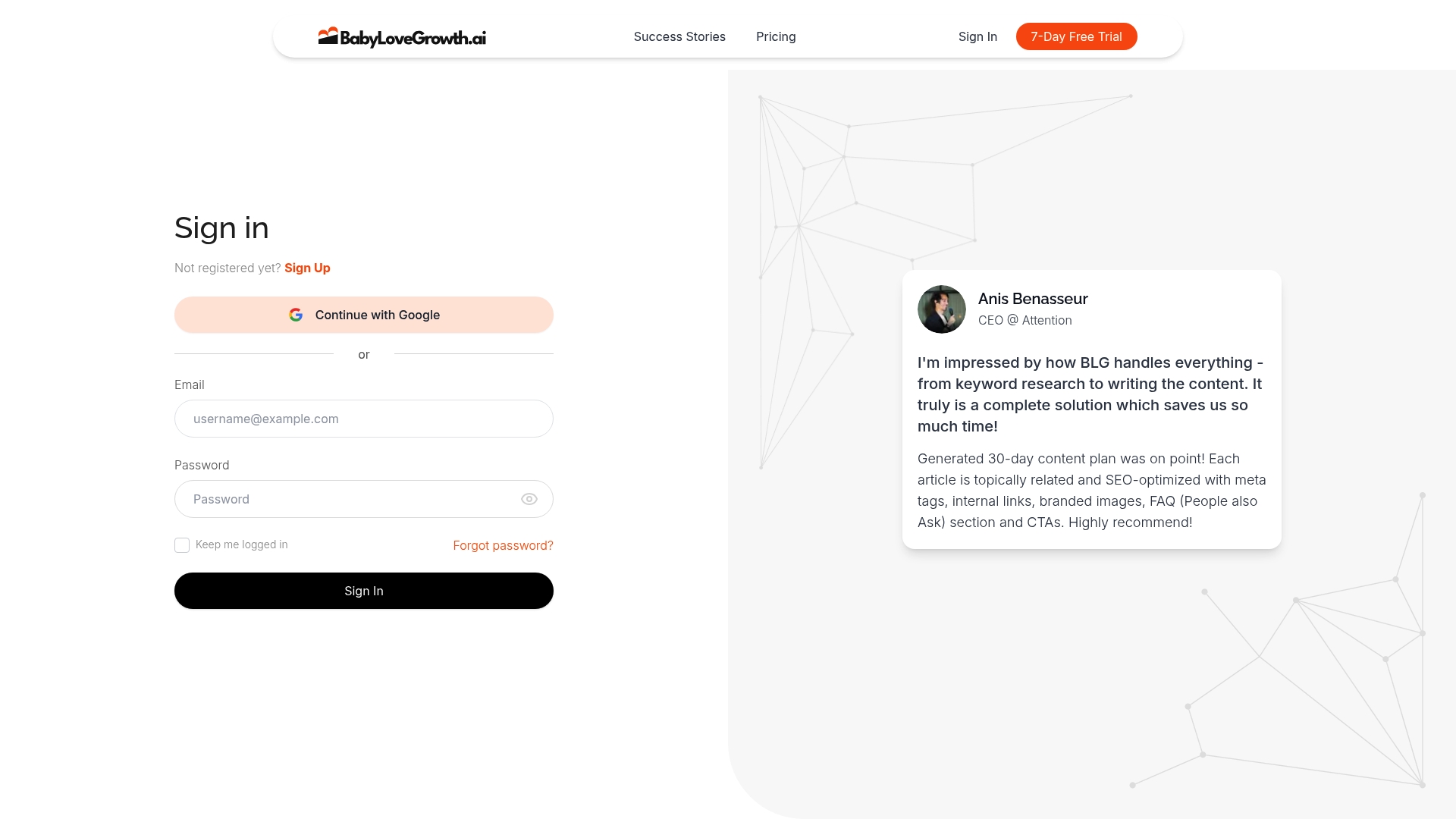
Why wait and risk falling behind? Start your free trial today at Babylovegrowth.ai to discover AI-driven solutions for faster site speed, optimized mobile performance, and authoritative content designed for both users and search engines. If you want to see how our AI can automate your content strategy and structured data implementation, get a personalized plan that solves your most pressing SEO pain points. Make your next move now at Babylovegrowth.ai and unlock true organic growth—no more guesswork, just real results.
Frequently Asked Questions
What are the key SEO best practices to follow in 2025?
Successful SEO in 2025 focuses on understanding evolving search engine algorithms, prioritizing user experience and site speed, optimizing for mobile-first indexing, leveraging AI for content creation, implementing structured data, emphasizing local SEO, and utilizing data-driven insights for continuous improvement.
How can I improve my website's loading speed?
To enhance website loading speed, ensure your site is mobile-responsive, minimize page load times to under 3 seconds, optimize images and videos, and consider using a content delivery network (CDN) for efficient content distribution.
Why is mobile optimization important for SEO in 2025?
Mobile optimization is critical because search engines now prioritize the mobile version of websites for ranking and indexing. A well-optimized mobile experience improves user satisfaction and helps maintain higher search engine rankings.
What role does AI play in the future of content creation?
AI plays a significant role in content creation by automating initial drafts, conducting keyword research, and providing data-driven insights. However, human oversight is essential to ensure authenticity, emotional resonance, and maintain quality in content production.
Recommended
Smart SEO,
Faster Growth!
Most Read Articles
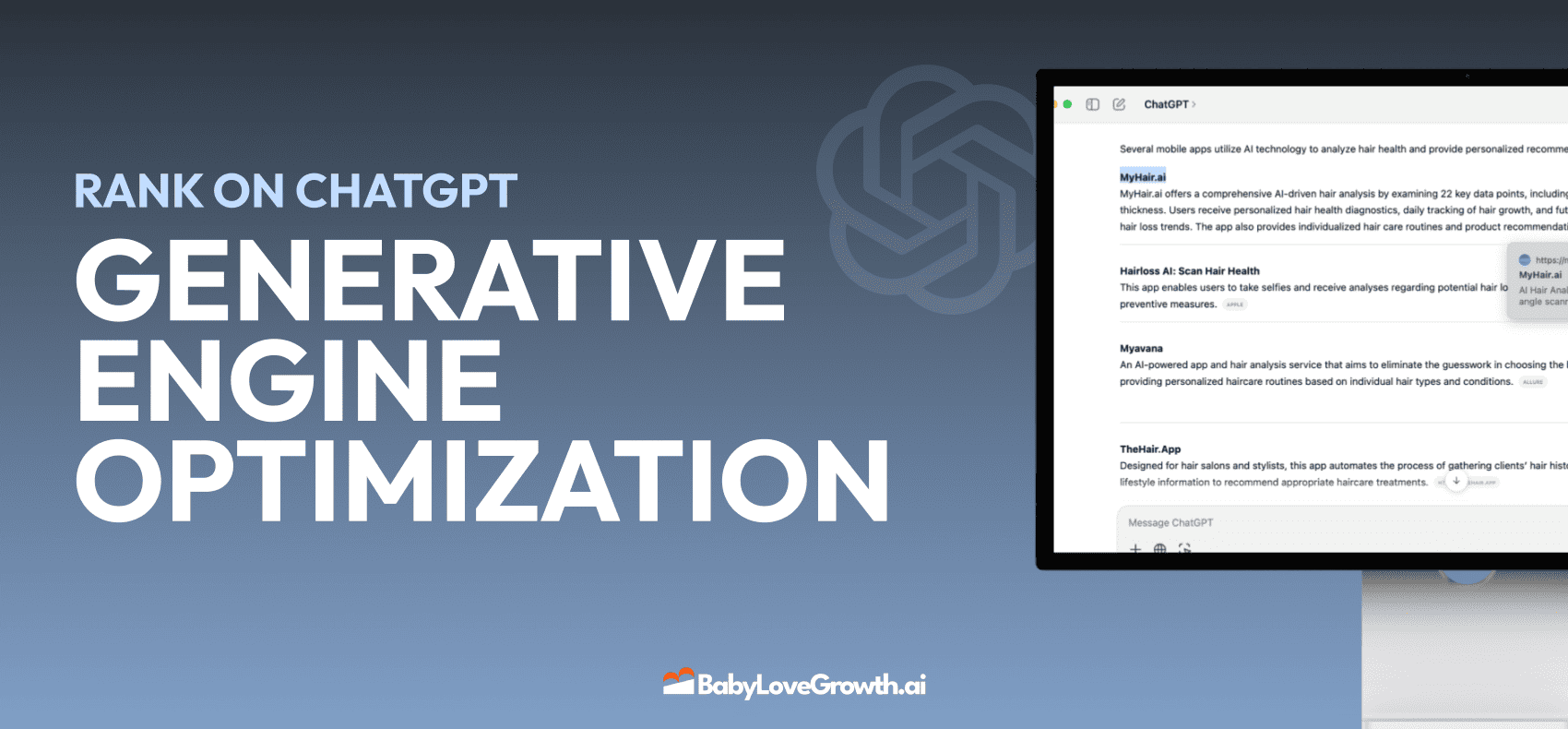
Generative Engine Optimization (GEO)
Learn how Generative Engine Optimization (GEO) helps your content rank in AI search engines like ChatGPT and Google AI. This comprehensive guide explains the differences between SEO and GEO, why it matters for your business, and practical steps to implement GEO strategies for better visibility in AI-generated responses.
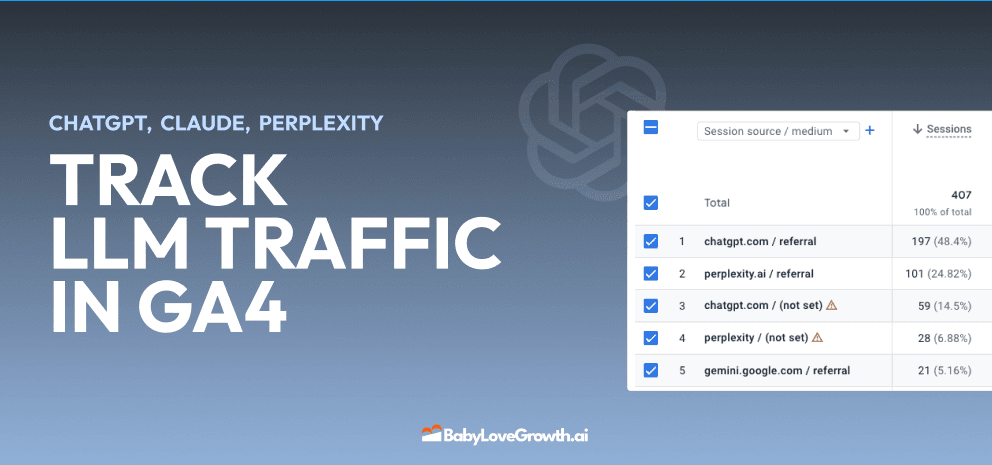
Track LLM Traffic in Google Analytics 4 (GA4)
Learn how to track and analyze traffic from AI sources like ChatGPT, Claude, Perplexity, and Google Gemini in Google Analytics 4. This step-by-step guide shows you how to set up custom filters to monitor AI-driven traffic and make data-driven decisions for your content strategy.
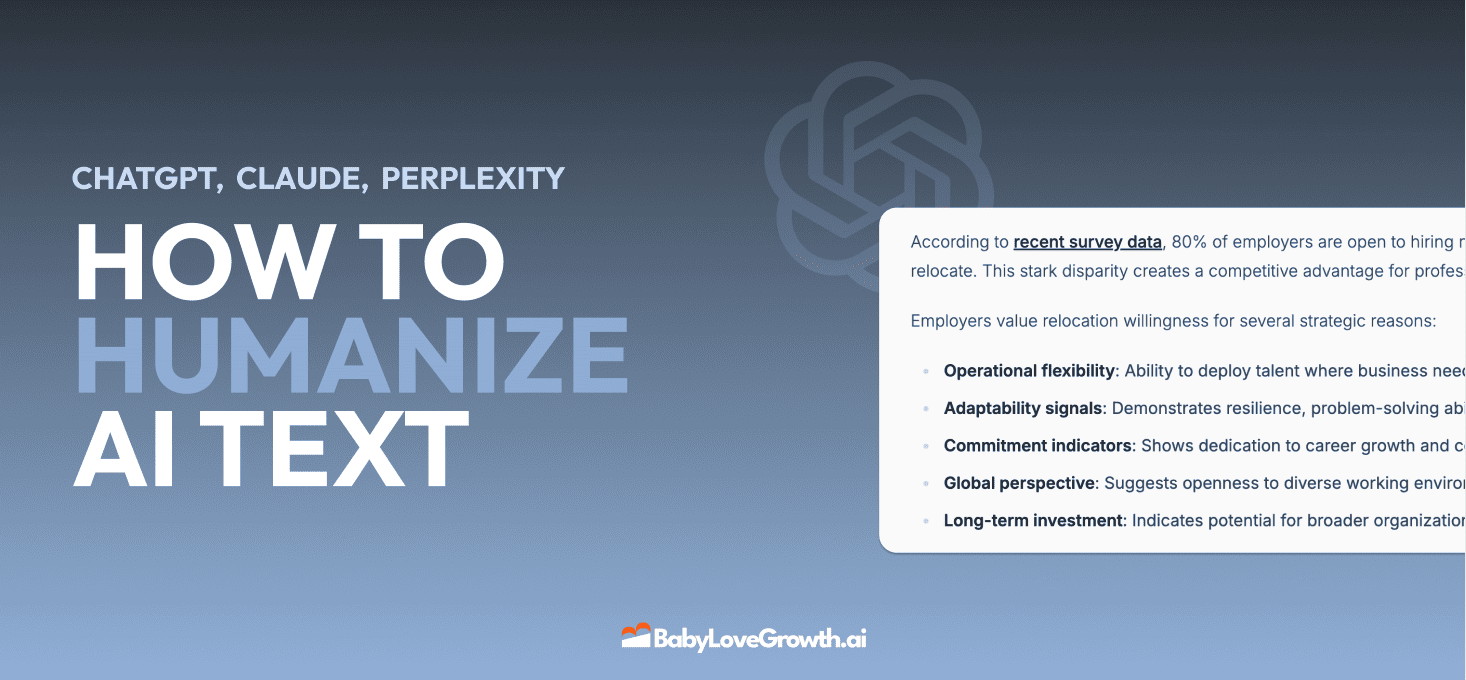
How to Humanize AI Text with Instructions
Learn practical techniques to make AI-generated content sound more natural and human. This guide covers active voice, direct addressing, concise writing, and other proven strategies to transform robotic text into engaging content.
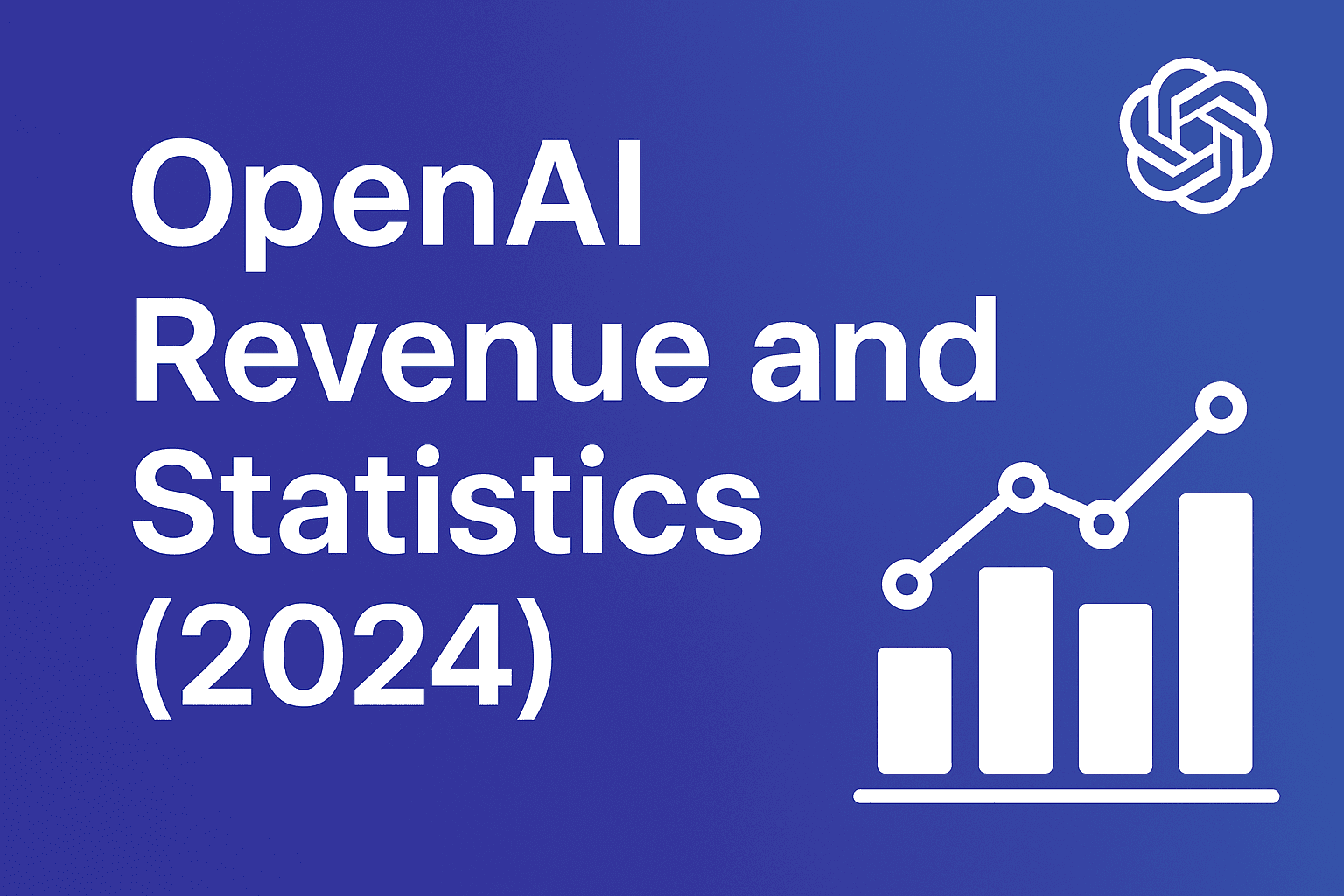
Open AI Revenue and Statistics (2024)
Comprehensive analysis of OpenAI financial performance, user engagement, and market position in 2023. Discover key statistics including $20B valuation, $1B projected revenue, and 100M+ monthly active users.